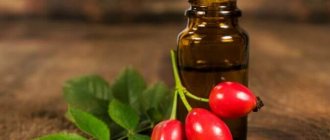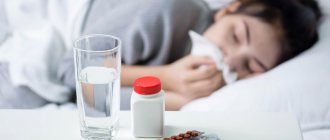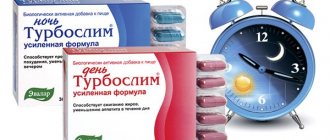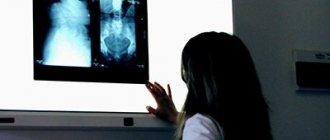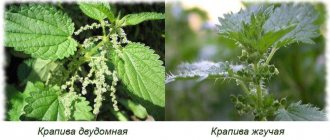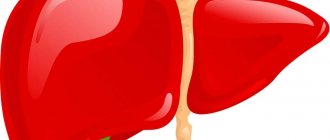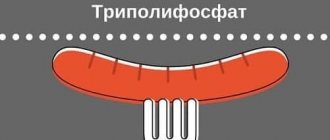Everyone knows about the benefits of pumpkin, but few people think that its seeds are no less useful. Among the huge variety of pumpkin varieties, there are decorative, fodder, intended exclusively for animals, as well as table ones, which are eaten by people.
Table pumpkin came to our country from America and took root very quickly, so now it is difficult to imagine gardens without pumpkin. Pumpkin has been known to mankind for a very long time; in particular, it was used by the ancient Aztecs. If we use only fruits, then the Aztecs ate flowers, stems, and seeds.
Storage and use
Despite the fact that roasted pumpkin seeds are much tastier than dried ones, the latter have more benefits, so it is recommended to use dried ones. The fact is that when heated, seeds lose up to 50% of nutrients and vitamins, which means they become half as useful. The easiest way is to prepare dried seeds yourself, since they are mostly sold fried. To do this, you need to collect pumpkin seeds and then dry them thoroughly in a warm oven or in the fresh air, placing them in a thin layer on a baking sheet. Once the seeds are dry, they can be stored in a glass container, wooden or cardboard boxes, or fabric bags.
Content:
- Storage and use
- Chemical composition
- Beneficial features
- Use in cooking
- Zinc and phosphorus in pumpkin seeds
- Use in folk medicine
- Pumpkin seed oil
- Contraindications for use
The risk of diseases will decrease
The same handful of pumpkin seeds can provide half your daily dose of magnesium. This reduces the risk of sudden cardiac arrest, heart attacks and strokes. In addition, magnesium has a positive effect on bone health, teeth, muscle function, blood pressure and physical fitness - and this is especially important for those who play sports.
Pumpkin seeds are widely used in pharmacology and supplements:
- against ulcers;
- to protect the liver;
- as a choleretic agent;
- against parasites.
Photo: unsplash.com/@anshu18
In addition, pumpkin seeds reduce the risk of cancer. It's all about the same zinc and calcium. Zinc reacts to calcium signals that come from cancer cells and neutralizes them, say scientists from Greece.
Chemical composition
If we talk about the benefits that pumpkin seeds bring to the body, then first of all it is necessary to mention fats, because they contain almost half of the total composition of healthy fats [1]. Another 30% is occupied by proteins necessary for the structure of our body [2]. Already a much smaller amount comes from dietary fiber (6%), as well as a little more than 5% water and about 5% carbohydrates and ash.
Pumpkin seeds also contain a large number of amino acids: 12 essential, that is, those that our body does not produce and should only receive as part of nutrients, and 8 replaceable [3]. Together, they almost completely satisfy a person’s daily requirement for amino acids, for which only 100 grams of seeds is enough [4]. In addition, 100 grams of pumpkin seeds contain more than 70% of vitamin PP, as well as most of the B vitamins.
Pumpkin seeds also contain a huge amount of useful macro- and microelements that are necessary for the normal functioning of our body.
100 grams of raw materials contain so much phosphorus that they can satisfy the daily requirement for it by 150%. The same can be said about the magnesium they contain. The amount of manganese in 100 grams of dried seeds is 2 times the daily requirement, which is a very high concentration that is difficult to find in any other products. They also contain large amounts of potassium, zinc and iron, which, although they do not satisfy the daily requirement, in any case help the body to function better. Composition of pumpkin seeds (per 100 g)
| Calorie content | 541 kcal |
| Water | 8.4 g |
| Squirrels | 24.6 g |
| Fats | 45.9 g |
| Carbohydrates | 13.5 g |
| Alimentary fiber | 4.3 g |
| Ash | 4.9 g |
| Vitamins | |
| Vitamin A | 228 mcg |
| Vitamin B1 | 0.2 mg |
| Vitamin B2 | 0.32 mg |
| Vitamin B3 | 1.7 mg |
| Vitamin B5 | 0.35 mg |
| Vitamin B6 | 0.23 mg |
| Vitamin B9 | 57.5 mcg |
| Vitamin C | 1.9 mg |
| Vitamin E | 10.9 mg |
| Vitamin K | 51.4 mcg |
| Macronutrients | |
| Potassium | 807 mg |
| Calcium | 43 mg |
| Magnesium | 535 mg |
| Sodium | 18 mg |
| Phosphorus | 1174 mg |
| Microelements | |
| Iron | 14.96 mg |
| Manganese | 3.01 mcg |
| Copper | 1.39 mg |
| Selenium | 5.6 mcg |
| Zinc | 7.45 mg [5] |
Pumpkin seeds with honey
Pumpkin seeds with honey are not just a sweet treat, but a real medicine for getting rid of many diseases. The mixture helps to treat prostatitis and prostate adenoma, to normalize sleep, and to relieve emotional stress.
You can pour honey over both whole and powdered peeled seeds. You need to store this healthy and tasty mush in the refrigerator in a glass jar with a tight-fitting lid.
Take a tablespoon of pumpkin seeds with honey several times a day before meals, 20 minutes before meals. But it is worth remembering that you should not eat more than 3 tablespoons of seeds with honey per day, since the calorie content of such a mixture is very high.
Beneficial features
Studies conducted by many scientists prove that substances contained in pumpkin seeds help fight cancer [6][7]. In addition, they can boost immunity and help the body fight bad cholesterol. Regular consumption of pumpkin seeds is also recommended for people who suffer from arthritis. They help fight this disease, strengthen blood vessels and, unlike pharmacological drugs, have no side effects. The zinc contained in the seeds helps improve the condition of bones, and, therefore, is an excellent prevention of diseases of the musculoskeletal system [8].
They are also able to maintain normal blood sugar levels and help reduce blood pressure. When consumed regularly, they help strengthen blood vessels and normalize the functioning of the gastrointestinal tract. They also act as an antidepressant, as they strengthen the nervous system and help us fight stress.
Few people know, but pumpkin seeds are good as an aid for seasickness. They help a lot if you get motion sickness during sea travel or in land transport.
Previously, pumpkin seeds were advised to be consumed by pregnant women in the early stages, although this remedy has now been forgotten. Nevertheless, it has not lost its relevance: a very small amount of seeds per day helps fight toxicosis and morning sickness.
Pumpkin seeds also work well as an immediate relief from constipation. It is enough to include a very small amount in your diet for the positive effect to become noticeable.
Pumpkin seeds can help the body cope with such a serious problem as the concentration of heavy metals in the body. Studies have shown that they help remove lead and cadmium.
Pumpkin seeds are used as a wound healing agent for burns: a paste of them should be applied to the wound as a compress.
Medicinal benefits of pumpkin seeds
Research shows that pumpkin seeds may reduce the risk of prostate and ovarian cancer. Experimental studies suggest that certain phytochemicals in pumpkin seed oil may play a role in preventing diabetic nephropathy (diabetic kidney disease).
The benefits of pumpkin seeds have long been known in folk medicine and have been confirmed experimentally and clinically. Pumpkin seeds contain its specific substance - the amino compound cucurbitin, which has an antiparasitic effect. It was also found that pumpkin seeds are low-toxic, unlike other remedies for helminthiasis.
Pumpkin seeds are used against tapeworms - tapeworms (bovine, pork, dwarf), broad tapeworms, pinworms.
For an antiparasitic effect, pumpkin seeds are taken on an empty stomach, following the doses:
Adults - 300 g
Children 3–4 years old – 75 g
5–7 years – 100 g
8–10 years – 150 g
10–15 years – 200–250 gr.
The seeds can be ground in a mortar and 50–100 grams of honey added.
Important: during the peeling process, be sure to leave the green shell, since the anthelmintic cucurbitin is contained in it.
3 hours after administration, the patient is given a laxative, then after 0.5 hours an enema is given.
Use in cooking
Pumpkin seeds are great for adding to some dishes to add flavor and make them healthier. They go best with vegetables, so you can add dried seeds to a stew or stir-fry of vegetables, the main thing is to do this after cooking. You can also add them to fresh vegetable salads to add a zesty taste and make your diet healthier and richer in minerals.
In cooking, pumpkin seeds are often used to make a spicy sauce. To do this, they are crushed, garlic and herbs are added to them, the resulting sauce is seasoned with vegetable oil of your choice and a few drops of lemon juice. The result is a tasty, original and very healthy sauce that goes well with a huge range of dishes.
If desired, you can even add pumpkin seeds to baked goods, for example, combine them with walnuts or use them separately. Pumpkin seeds taste good in side dishes. They are added to porridges at the end of cooking, as well as to various soups, preferably vegetable or cold.
Hair, nails and skin will be restored
Calcium, potassium, phosphorus, magnesium, manganese - all together they will have a good effect on the body both externally (the condition of the skin, hair and nails) and internally. Pumpkin seeds contain various vitamins and other beneficial substances. And in oil (its share is on average 35-40% of the seed) there are unsaturated, saturated and polyunsaturated fatty acids.
What will happen if you drink a teaspoon of honey with garlic every day?
What are the benefits of cranberries and how much can you eat per day?
Pumpkin seeds are the record holder among products of both plant and animal origin in terms of vitamin E content.
Zinc and phosphorus in pumpkin seeds
The substances contained in the seeds, in particular zinc and phosphorus, are beneficial for brain function, and zinc is also an indispensable and extremely important element for the health of the male body. Research has shown that zinc can act as an effective preventative against prostate inflammation, so pumpkin seeds will be extremely beneficial for any man [9]. They are especially suitable for those men who sit a lot at work, especially if it is associated with intellectual stress. In the latter case, consuming pumpkin seeds simultaneously strengthens the nervous system, improves mental abilities, helps fight stress, and at the same time supports men's health, reducing the risk of prostate problems.
Additionally, pumpkin seeds can be an excellent source of zinc for those who need it. This is an excellent alternative to vitamins and various supplements, as they are easier to digest and provide much more benefits. Zinc deficiency usually manifests itself in poor skin and hair condition, as well as disruption of the gastrointestinal tract [10]. So, if you need to normalize the level of zinc in the body, the easiest way is to consume a small amount of dried pumpkin seeds every day. Just a month will be enough for you to notice the effect and feel much better. Zinc and phosphorus contained in the seeds regulate the reproductive system and help our vision, and also supports the musculoskeletal system.
Improved bones and immunity
Zinc is an important mineral that plays an important role in the functioning of the body. For example, it supports immunity. The list of systems and organs in the functioning of which zinc is involved can be continued for a very long time.
Photo: unsplash.com/@maceylarie
Pumpkin seeds, along with oysters and sesame seeds, are among the top three foods rich in this mineral. A handful (about 30 g) contains 70% of the daily requirement.
Among other things, zinc restores bone density and prevents osteoporosis, helps with joint inflammation, normalizes digestion and lowers cholesterol, and promotes weight loss.
Use in folk medicine
Pumpkin seeds are used as a proven folk remedy for getting rid of intestinal parasites [11]. For many centuries, people have been fighting worms in this way; in particular, even your doctor can advise you to use them as a safe means of getting rid of parasites.
Pumpkin seeds do not contain substances that are found in pharmacological drugs and that can cause side effects. This means that pumpkin seeds for worms are an excellent natural and completely safe remedy for both adults and children. They contain cucurbitin (a toxin that kills parasites), but in small doses it is completely safe for humans.
The simplest folk method of treating parasites: take 300 grams of dried pumpkin seeds, chop them, add a little honey and eat small portions within an hour on an empty stomach. After 4 hours, you need to take a mild laxative, preferably a natural one, like castor oil.
The seeds can also help with various diseases of the urinary tract and kidneys. It is best to combine them with hemp seeds in a 1:1 ratio. Compresses are also good for these purposes, for which you need to crush a certain amount of seeds into powder, add crushed flax seeds, add a little water and apply to the kidney area. For a wide range of diseases of the urinary tract or kidneys, including cystitis, the following remedy helps well: 50 grams of seeds should be thoroughly crushed, add 20 grams of sugar and 80 grams of water. The resulting product should be taken a little before meals. It will help relieve inflammation and improve the condition of the genitourinary system as a whole [12].
In addition, a decoction of pumpkin seeds helps to calm down, relieve tension and reduce stress levels. This is a great help if you have insomnia or restless sleep.
Some pharmacological preparations are created on the basis of pumpkin seeds; in particular, there are medicines made on the basis of pumpkin oil. They are used for the same purposes as pumpkin seeds: to support the biliary tract, to treat infections, to maintain normal liver health, or to treat metabolic disorders.
Treatment with pumpkin seeds, recipes
Treatment with pumpkin seeds can be reduced to their daily intake in the recommended volumes. Regular inclusion of pumpkin seeds in food is the prevention of many diseases. Even traditional medicine has recognized the health benefits of pumpkin seeds and their medicinal properties. So, in the pharmacy you can find the drug Tykveol, which is based on pumpkin seed oil. It is recommended to be used for infectious diseases, for the prevention of oncology and atherosclerosis. There are also many folk recipes based on pumpkin seeds:
- The cardiovascular system.
Cholesterol poses a serious danger to humans. Pumpkin seeds contain 951% of the daily minimum of various phytosterols, which block the absorption of cholesterol from food, control blood pressure and thin the blood. And fiber and omega-6 can reduce the risk of arrhythmia and thrombosis, which is the most common cause of death in the world.
In order to strengthen your heart and vascular system, it is enough to regularly drink a decoction of pumpkin seeds. The recipe is very simple: take three tablespoons of pumpkin seeds and pour 300 ml of cold water. Place the resulting mixture on the fire, bring to a boil and simmer for 5 minutes. The decoction should be drunk a quarter glass before bed.
A decoction of pumpkin seeds will help prevent heart-related diseases, and also strengthens blood vessels and normalizes sleep.
- Treatment of wounds and burns.
Grind the seeds in a coffee grinder or blender, wrap in thick gauze and scald with boiling water. After cooling, the compress can be applied to sore spots. This paste will not only relieve pain, but will speed up tissue regeneration processes.
- To normalize intestinal function.
Pumpkin seeds have a laxative effect and help remove all toxins from our body. They are considered an excellent remedy that helps cope with constipation, bloating and other intestinal problems.
Recipe.
Peel 100 grams of raw seeds and grind them in a blender or coffee grinder. The powder should be taken every morning on an empty stomach, 2 tablespoons and washed down with warm milk. After an hour, take a laxative. The course of such treatment is 5 days. It should be noted that pumpkin oil is also useful, which in itself is useful for the prevention of gastritis and stomach ulcers.
Pumpkin seeds contain zinc, per 100 grams accounting for half the daily requirement. Many people know that zinc is an active antibacterial agent against viruses and bacteria. It’s enough just to eat pumpkin seeds and the supply of zinc in the body will increase significantly.
Pumpkin seeds contain a high amount of zinc, which helps prevent prostatitis in men. In addition, many traditional healers use pumpkin seed extract and oil to prevent prostate cancer. Of course, the problem with the prostate will not be completely solved, but the condition will improve significantly. If a man experiences problems with the prostate, then a frequent urge to urinate, which comes with pain in the scrotum, is a sure companion. It is these sensations that pumpkin infusion will help you get rid of.
- Recipe 1.
Seeds (0.5 kg) are ground into flour and 200 g of honey (not candied) are added to them. The mixture is placed in the refrigerator to thicken, after which it is rolled into small balls the size of hazelnuts. Such balls need to be dissolved on an empty stomach (1-3 balls). The course of treatment is a month.
You can grind the seeds into flour, but they should be thoroughly dried first. The powder should be taken twice a day before meals in the amount of two tablespoons. The mixture is washed down with a glass of honey water. It is recommended to grind the seeds together with the peel, and sift them before use.
For inflammatory processes of the bladder and kidneys, it is necessary to consume a mixture of hemp and pumpkin seeds in equal proportions daily. Volume – 1 teaspoon, number of doses – 2 times a day with meals. Pumpkin milk is good for cystitis. The peeled seeds are mixed with sugar and water (proportions 50 g: 20 g: 80 ml). Take a teaspoon three times a day before meals.
100 grams of pumpkin seeds contain the daily dosage of tryptophan. This amino acid is responsible for the synthesis of serotonin in our body. Many people know that serotonin is a source of good mood. Take a small amount of seeds during periods of low mood.
Pumpkin seeds contain a huge amount of microelements that have a positive effect on our body. For example, zinc and selenium fight cancer cells, and vitamin E slows down their aging.
Consume pumpkin seeds to replenish your body with essential microelements. Remember that one product will not cope with the disease; you need to monitor your diet and sleep.
Video: nutritious breakfast smoothie made from pumpkin seeds:
Keep these tips and tricks in mind to get the most out of your pumpkin seeds:
- Eat the seeds raw. A fried product loses half of its positive properties;
- Do not use old and spoiled seeds, as they go rancid and can be harmful to health, taste them;
- Peel the seeds before use or buy them peeled immediately;
- 50 pumpkin seeds per day helps improve skin and hair;
- Eat seeds with the skin on if you want to add fiber to your diet. Clean them if you are not sure that your digestive tract can digest them. Side symptoms include abdominal pain and diarrhea.
Pumpkin seeds help add variety to your diet. With their help, you get not only healthy, but also delicious dishes.
Pumpkin seed oil
Almost 50% of pumpkin seeds are their fat component. They consist of vegetable oils that have a huge number of beneficial properties. These substances help remove toxins from the body and also get rid of bad cholesterol. They protect the body at the cellular level and also improve the condition of the heart muscle. Pumpkin seed oil is even used by doctors for the maintenance treatment of tuberculosis or intestinal disorders.
Due to its wide range of beneficial properties, pumpkin seed oil is widely used by many people as an additive to dishes, since it is much healthier than olive oil.
How to dry pumpkin seeds?
Pumpkin seeds need to be properly dried so that they retain maximum benefits and do not lose their taste. To do this, they should be carefully removed from the pulp of the fruit, rotten specimens should be selected and washed under running water. It is convenient to use a colander for this purpose. Then the seeds are laid out on a towel and dried on both sides, this allows you to remove excess moisture from them.
If you plan to roast the seeds, this will replace the drying process. They are simply placed in a frying pan and fried until golden brown. For complete cooking, 15 minutes will be enough.
In an air fryer, the seeds are dried at a temperature of 60 °C for half an hour. The electric dryer is turned on at a temperature of 80 °C, drying time is 40 minutes. The oven is heated to 80 °C and the seeds are kept in it for 20 minutes. Wherever the seeds are dried, they must be stirred periodically.
If you have time, you can dry the seeds outdoors in a warm room with low humidity. As a rule, one week is enough to completely dry the seeds. In this way, it will be possible to obtain the most useful product that will retain all the vitamins and microelements.
Possible harm and contraindications
Despite all the beneficial properties of “white” seeds, they have a number of contraindications and harmful properties if a person has certain allergic reactions or individual intolerance to pumpkin.
Even if you simply eat too many seeds, you can provoke an exacerbation of diseases of the gastrointestinal tract, for example, ulcers, gastritis and other ailments. In addition, overuse of this product can cause diarrhea, lead to obesity, and if you frequently gnaw on them with your teeth, there is a risk of damaging the enamel.
Prevention of impotence
Pumpkin seeds are extremely beneficial for men, so it is recommended to use them as a preventive measure for diseases of the reproductive system. It should be consumed only in its pure form, and not purchased mixtures with salt and flavorings. You should definitely include fresh pumpkin, its juice and seeds in your diet. In addition to this, there are a few more rules:
- to live an active lifestyle;
- stop smoking, alcohol;
- eat more eggs, nuts, honey and meat;
- do not forget about 1.5-2 liters of clean water daily.
Some people do not like the taste of pumpkin seeds and the fruit itself, or the body does not digest such products. In this case, it is recommended to take 1 tbsp every day. l. pumpkin oil, purchased at the pharmacy or prepared yourself. It is worth paying attention to the side effects, as it sometimes causes diarrhea.
READ ALSO: Decreased libido in men
Product storage conditions
If you decide to get pumpkin seeds rather than buy a ready-made bag in the store, you should cut it in half, remove the seeds, wash them, and then dry them on a paper surface.
The dry and unhulled seeds can then be stored in cloth bags, cardboard boxes, clay pots or even glass, but only at room temperature.
If the seeds have already been peeled, they can be kept in an airtight container in the refrigerator.
By the way, it is advisable not to store pumpkin seeds in plastic bags, as they may lose their properties and become unfit for consumption.
Answers to popular questions:
- How many pumpkin seeds should you eat per day?
It will be enough for an adult to eat 60-70 pumpkin seeds per day.
- Can I eat pumpkin seeds with the skin on?
Pumpkin seed shells are safe to eat and contain more fiber than shelled ones. However, people with digestive problems are advised to avoid consuming whole seeds, as their high fiber content can cause symptoms such as pain and diarrhea.
- Can I have pumpkin seeds while breastfeeding?
It is possible, but in moderation. Mothers of children with allergies should be especially careful. After taking the seeds for the first time, you should carefully monitor the baby’s reaction to a new product on the nursing woman’s menu.
- Is it possible to have pumpkin seeds for pancreatitis, diabetes and gastritis?
For pancreatitis and gastritis, pumpkin seeds are prohibited, but for diabetes mellitus, they can be included in the daily menu.
